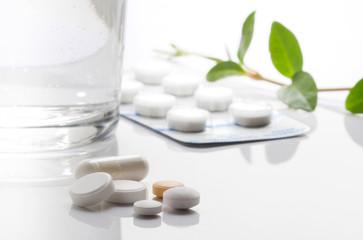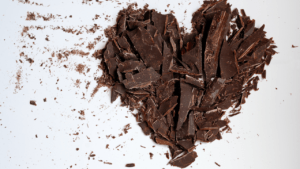Herbs vs Drugs for Mental Health – Which is better?
by Vanita Dahia
When navigating the complexities of mental health, the conversation often centers on pharmaceutical Selective Serotonin Reuptake Inhibitors (SSRIs), Serotonin-Norepinephrine Reuptake Inhibitors (SNRIs), and other psychiatric drugs. For conditions like severe depression, anxiety, psychosis, or ADHD, these medications—backed by extensive research and clinical trials, are often essential and life-changing. They target specific neurotransmitter imbalances to manage symptoms and restore function.
Pharma vs. Nature: A Holistic Look at Mental Health Support
The question of what’s “better” is rarely a simple black-and-white choice. A holistic perspective highlights the powerful role of herbs, amino acids, and essential nutrients as supportive tools.
Our brain’s chemical messengers—the neurotransmitters—are manufactured from the building blocks we consume. For example, the amino acid Tryptophan is a precursor to serotonin, and Tyrosine builds dopamine and norepinephrine.
B-vitamins (especially B6, B12, and folate), zinc, iron, and Omega-3 fatty acids are critical cofactors in these creation pathways. If your body lacks these foundational nutrients, manufacturing a full complement of inhibitory or excitatory neurotransmitters is challenging.
Herbs like St. John’s Wort have been researched for mild to moderate depression, and Ashwagandha and Kava for anxiety, showing efficacy comparable to some conventional treatments, often with a milder side-effect profile.
Drugs are usually a single component and they patented. Sometimes more than one ingredient, like an antihypertensive and a diuretic together. Herbs on the other hand, are so different. They have many components let’s look at an apple it contains vitamins, pectin, malic acid, fiber, etc. Herbs have alkaloids and terpenoids and many active components.
So filling up the tank or making more neurotransmitters needs specific amino acids, vitamins, minerals, herbs, phytotherapy, to get more neurotransmitters in the brain to assist with mental health.
So definitely have a look at the research on lemon balm which is also known as Melissa Officialis, which was shown to be equivalent to fluoxetine, and without the side effects of insomnia, headaches and anxiety and increased appetite which you often see with SSRI\’s.
Lavender is has been shown to be as effective and more better tolerated than paroxetine.
So one size does not fit all. You can measure neurotransmitters and work with a qualified integrative health expert to tailor the right fit for you, whether it be drugs or herbs or nutrients.
Ultimately, the best approach is integrated and personalized. While herbs and nutrient support provide the foundational fuel for brain chemistry, they should be viewed as complementary. For complex or severe conditions, professional medical guidance, which may include prescription medications, is non-negotiable.
Always consult a qualified practitioner before combining any drug and supplement to prevent potentially harmful interactions.




